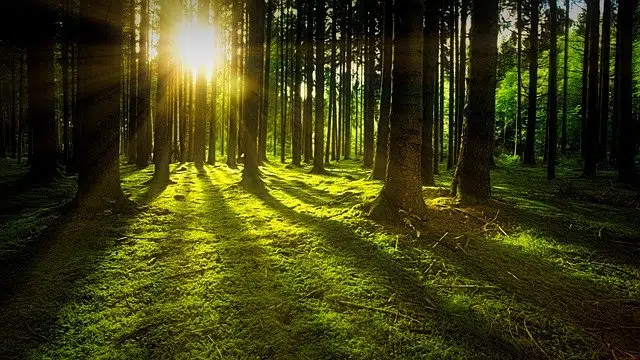
Naturalism is called a philosophical system that revolves around nature as the sole origin of reality.
Naturalism is a philosophical system that highlights nature as the first principle of reality. The naturalist current maintains that nature is made up of the totality of existing physical realities and, therefore, is the sole and absolute origin of reality .
For philosophical naturalism, everything real is natural and vice versa ; There is no possible reality outside the limits of nature. Likewise, it should be noted that it denies the nature-spirit duality, since the latter is considered a special form of the former, and reducible to it.
Materialism (as opposed to idealism ) and mechanism (nature as a set of processes governed by mechanical laws and magnitudes) are other concepts that contributed to the development of naturalism.
Naturalism as an artistic movement
Beyond philosophy , naturalism is an artistic and aesthetic movement that is responsible for reproducing the creations of nature. It had particular importance in 19th century literature , following the methods of experimental science. The French journalist and writer Émile Zola ( 1840 – 1902 ) is considered the greatest exponent and theorist of naturalism.
Among the main characteristics of artistic naturalism is the preponderance of physiology in the behavior of the characters, social denunciation, anticlericalism, positivist determinism (the characters are determined by genetics and the environment), pessimism and tremendism.
Naturalism also usually presents eroticism as a social disease, related to prostitution and pornography. Sex, therefore, is not linked to pleasure or love, but to vice and decadence.

The idea of naturalism appears in philosophy, art and ecology.
Luis Miguel Domínguez Mencía, caretaker of nature
The naturalist Luis Miguel Domínguez Mencía was born in Madrid, Spain, in 1963 and is especially known for having directed television series about nature, although he has also collaborated with radio programs and has published five books, among which are « Guide to street fauna » and « Our land, our life «. In addition to having extensive experience , he captivates his listeners with his charisma and his unmistakable voice , while sharing his knowledge in a pleasant and approachable way.
His interests are not limited to ecology , as he expresses a deep admiration for technological advances and, in general, for any human activity. However, one of its main objectives is to ensure that our development as a civilization impacts nature as little as possible, so that we manage to live in an eco-efficient way . It is known that he actively promotes free expression, which can be seen in the countless debates in which he participates alongside people who are far from feeling respect for his ideas.
Naturalism as a guide
Through his work, Domínguez Mencía advocates respect for natural landscapes and the conservation of biological diversity. Furthermore, it not only seeks to raise awareness about the importance of wild species, but also of street species, for which it carries out tireless work of studying and disseminating the richness of urban fauna and its needs.
Although he is especially known in Spain, his passion for nature has led him to travel to various parts of the world, to soak up the problems faced by countries as diverse as Brazil or Italy, to contribute his grain of sand in the arduous and endless path. towards coexistence in harmony between human beings and the rest of the species .
Some of the television series of his authorship are " Amazon, last call ", " De campo y sin merienda " and " El naturalista en casa ". On the other hand, the documentaries « Korubos. Die Killing » and « Invaders «.
